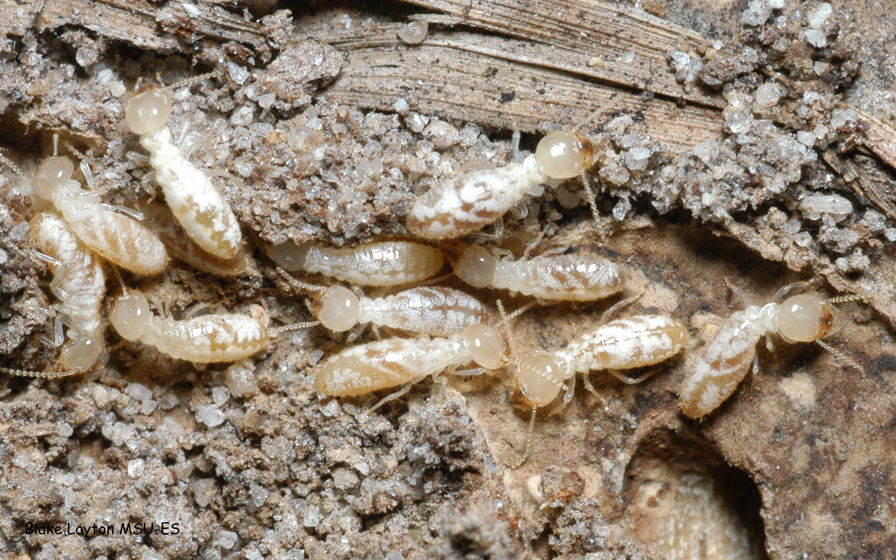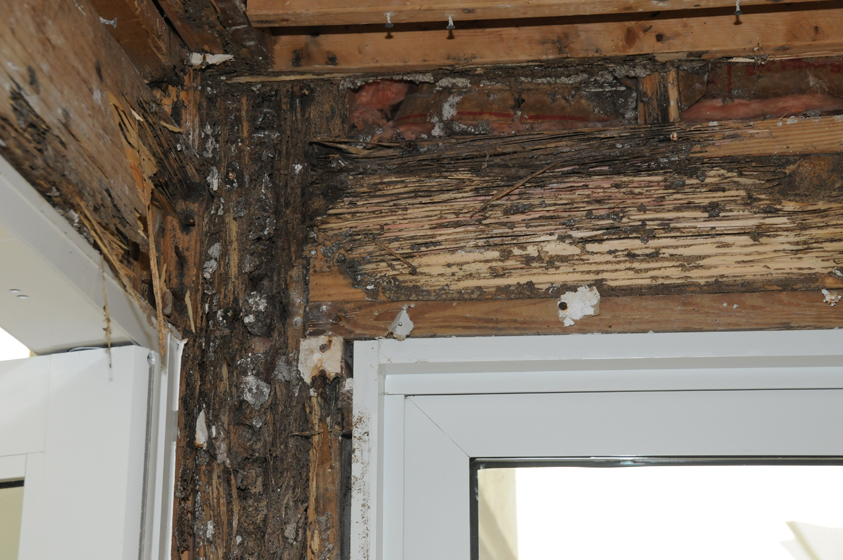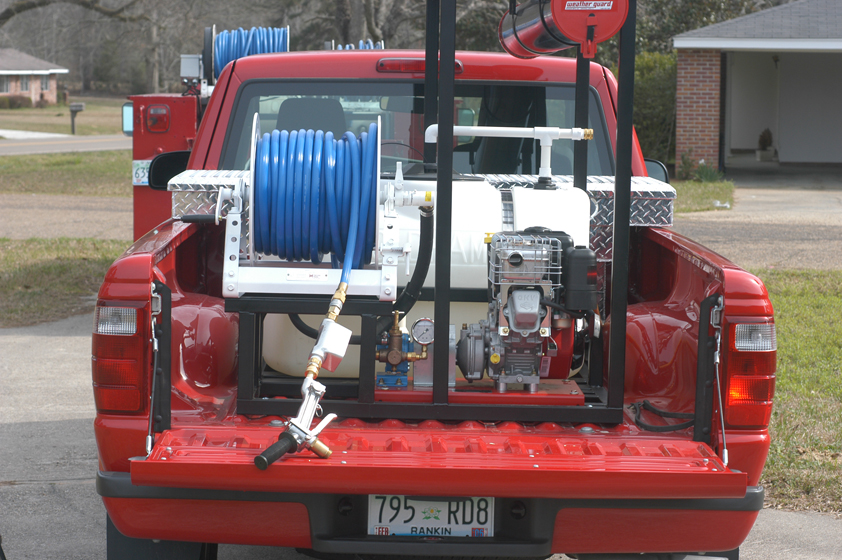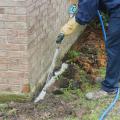Termite Control Overview
Buildings that are not properly protected from termites will eventually be damaged by termites. The best way to protect your home or building from termites is to be sure it has been preventively treated for termites and that the termite treatment is current and nothing has happened to compromise its effectiveness. Termite control is not a do-it-yourself job! If you want the job done right, it is important to contract with a licensed pest control company to apply termite treatments.

Termites are a fact of life in Mississippi. Eastern subterranean termites occur throughout the state and non-native Formosan termites now occur in 25 counties and continue to spread. Buildings that are not properly protected from termites will eventually be damaged by termites. Wood and wood-framed buildings are especially susceptible to termites, but even buildings made of masonry and/or metal are subject to attack. Termites can still invade such buildings and damage items such as wooden floors or molding, cabinets and other built-in wooden furniture, as well as sheetrock walls, books, and other paper products stored in the building. Termite damage can be costly to repair, very costly in some cases, and repairs can be disruptive to day-to-day living (Figure 2).

The best way to protect your home or building from termites is to be sure it is has been preventively treated for termites and that the termite treatment is current and nothing has happened to compromise the effectiveness of the treatment. New buildings, as well as additions to existing buildings, must be properly pre-treated at the time of construction. Because termite treatments degrade over time, existing buildings must also be periodically re-treated, with the interval between treatments depending on the type of treatment used. Some liquid termiticide treatments can last 12 years or longer. However, liquid termite treatments can also fail sooner due to conducive conditions or other factors that compromise the effectiveness of the treatment, resulting in an active termite infestation. Bait treatments can provide control indefinitely as long as the service contract is kept in force and bait stations are properly maintained, but bait stations must be monitored at least yearly, or more often depending on treatment, and replenished as necessary.
Active termite infestations occur for a variety of reasons: because the building was not properly treated to begin with, because the termite treatment has degraded over time, or because of conducive conditions that allowed termites to invade the building. If you think your home or building is infested with termites, the first step is to contact a pest control company to arrange for an inspection. If you already have a termite control contract in force with a particular company, this is the company you should call first. The purpose of the inspection is to confirm the infestation and, if necessary, to arrange to have the building treated. Time is important here, but don’t be in such a rush to get the building treated that you make mistakes. You don’t want to wait many months before getting the building treated, but it is usually ok to take a little time, as long as a month or two if necessary, to gather information and get bids from several companies before deciding what to do. The amount of wood eaten by the average termite colony on a daily basis is relatively small; it is the fact that they are active 365 days of the year that causes their damage to add up.
As a property owner, you should become familiar with the more common signs of termite infestation so you can detect infestations early and control them before they have caused excessive damage. If you have a termite control contract with a pest control company and keep your contract in force by paying the annual renewal fee, the company will conduct an annual termite inspection for no additional charge. If you do not have a termite control contract, most pest control companies will also conduct termite inspections upon request.
Termite control is not a do-it-yourself project! Whether you need a preventive termite treatment or a remedial treatment to eliminate an active termite infestation, it is important to contract with a licensed pest control company to apply the treatment. Pest control companies employ trained technicians who know how to properly apply termite treatments and they have the tools and materials necessary to do the job right. Pest control companies that provide termite control services are closely regulated by the Mississippi Department of Agriculture and must meet or exceed rigid minimum standards for quality and service.

Dr. Blake Layton, Extension Entomology Specialist
Department of Entomology, Mississippi State University
Phone: 662-325-2960
Email: [email protected]
Termite Control Overview Publications
Publications
News
Termites exist all over Mississippi and will eventually infest and damage any structure that contains wood or other cellulose components unless you properly protect those structures.
Invasive Formosan subterranean termites were first found in the state 40 years ago, and soon, these dangerous pests will swarm and threaten unprotected structures in about one-third of Mississippi’s counties.
Santos Portugal, Mississippi State University Extension Service urban entomologist, said Formosan termites typically swarm in the millions from early May to early June. They have the ability to infest and significantly damage structures much more quickly than native subterranean termites.
House and building owners must be on high alert each spring as structures face dangerous attacks by swarms of both native and introduced termite species.
Native, subterranean termite species have started swarming in late February in South Mississippi to early March in more northern areas. The non-native, invasive and very damaging Formosan subterranean termite begins swarming in some parts of Mississippi in May.
Success Stories
A dream of the Mississippi Pest Control Association and the Mississippi State University Extension Service is coming true after more than 20 years, thanks to a generous donation by one of Mississippi’s oldest pest-control companies.






